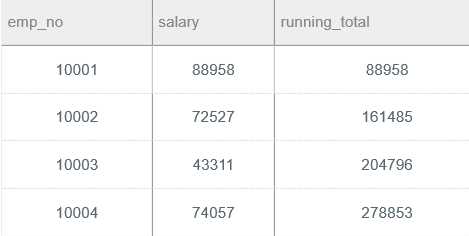标签:函数 必须 first exp not 排列 输出 fir 字符
1、针对库中的所有表生成select count(*)对应的SQL语句
在 SQLite 系统表 sqlite_master 中可以获得所有表的索引,其中字段 name 是所有表的名字,而且对于自己创建的表而言,字段 type 永远是 ‘table‘,详情可参考:
SELECT "select count(*) from " || name || ";" AS cnts FROM sqlite_master WHERE type = ‘table‘
# 在Mysql中,针对库中的所有表生成select count(*)对应的SQL语句:
select concat("select count(*) from ",table_name,";") as cnts
from information_schema.tables where table_schema=‘niuke‘;
#在Mysql中,针对所有数据库中的所有表生成select count(*)对应的SQL语句:
select concat("select count(*) from ",table_name,";") as cnts
from (select table_name from information_schema.tables) as new;
# MySQL中获得所有表的名称: select table name from information schema.tables where table schema=‘mydata‘;
2、查找字符串‘10,A,B‘ 中逗号‘,‘出现的次数cnt。
select length("10,A,B")-length(replace("10,A,B",",","")) as cnt
3、获取Employees中的first_name,查询按照first_name最后两个字母,按照升序进行排列
select first_name from employees order by substr(first_name,length(first_name)-1)
4、按照dept_no进行汇总,属于同一个部门的emp_no按照逗号进行连接,结果给出dept_no以及连接出的结果employees
select dept_no,group_concat(emp_no) employees from dept_emp group by dept_no
5、查找排除当前最大、最小salary之后的员工的平均工资avg_salary。
///错误原因 select avg(salary) as avg_salaryfrom salaries
where salary not in( select min(salary),max(salary)
from salaries)and to_date = ‘9999-01-01‘; /*select min(salary),max(salary) from salaries;这个语句最后输出的是两列,但是not in的话,只对一列的值进行操作,所以会报错.*/
select avg(salary) as avg_salary from salaries where to_date=‘9999-01-01‘ and salary not in ( ( select max(salary) from salaries ), ( select min(salary) from salaries ) )
6、分页查询employees表,每5行一页,返回第2页的数据
select * from employees limit 5,5
# 查询10条数据,索引从0到9,第1条记录到第10条记录 select * from t_user limit 10; select * from t_user limit 0,10; # 查询8条数据,索引从5到12,第6条记录到第13条记录 select * from t_user limit 5,8;
7、获取select * from employees对应的执行计划
explain 用于获得表的所有细节
EXPLAIN SELECT * FROM employees;
8、给出emp_no、first_name、last_name、奖金类型btype、对应的当前薪水情况salary以及奖金金额bonus。 bonus类型btype为1其奖金为薪水salary的10%,btype为2其奖金为薪水的20%,其他类型均为薪水的30%。 当前薪水表示to_date=‘9999-01-01‘
select E.emp_no,E.first_name,E.last_name,EB.btype,S.salary, ( CASE EB.btype WHEN 1 THEN S.salary*0.1 WHEN 2 THEN S.salary*0.2 ELSE S.salary*0.3 END ) AS bonus from employees E,salaries S ON E.emp_no=S.emp_no inner join emp_bonus EB on E.emp_no=EB.emp_no WHERE S.to_date=‘9999-01-01‘
9、累积递增求和:照salary的累计和running_total,其中running_total为前两个员工的salary累计和,其他以此类推。 具体结果如下Demo展示。

select S1.emp_no,S1.salary, ( SELECT sum(S2.salary) FROM salaries S2 WHERE S1.emp_no>=S2.emp_no AND S2.to_date = ‘9999-01-01‘ ) as running_total FROM salaries S1 WHERE S1.to_date = ‘9999-01-01‘ ORDER BY S1.emp_no
标签:函数 必须 first exp not 排列 输出 fir 字符
原文地址:https://www.cnblogs.com/alidata/p/12723867.html